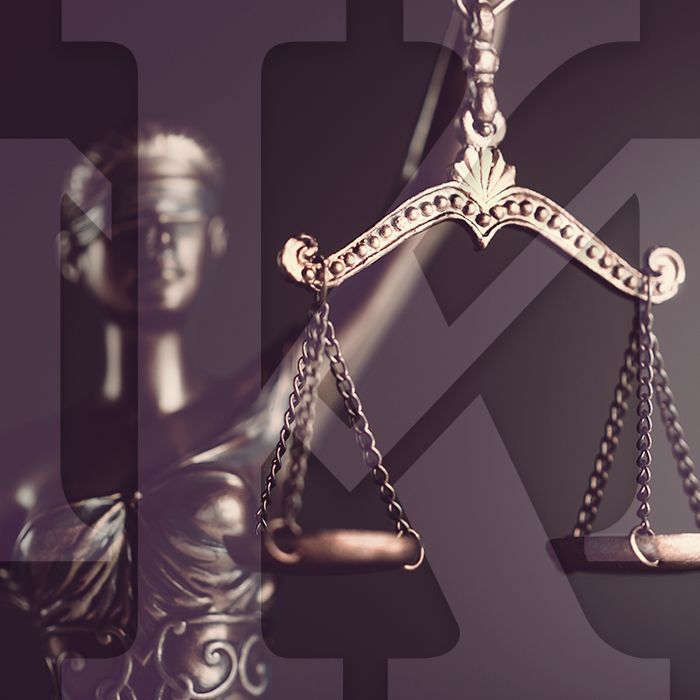
Carmel DWI Lawyer
DUI ATtorney Serving Westchester & Putnam Counties
A DWI is a very serious charge that can have a profound impact on a person’s life if convicted. A DWI conviction could limit employment and housing options significantly, and, in the event of felony DWI, have even harsher consequences down the line.
Choosing a Carmel DWI attorney swiftly and decisively is critical to the success of your case, and at The Law Office of Keith R. Murphy, you will find a dedicated Carmel DUI lawyer with an impressive track record of defending clients throughout Putnam and Westchester County. Whether you are trying to keep your license from being suspended, have been charged with multiple DUIs, or are underage and trying to determine how to proceed, Attorney Murphy has what you need to build a strong case in your favor.
Call (845) 584-7033 or contact us online to schedule your free consultation with our leading DWI lawyers in Carmel, NY today!
Call Our Carmel DWI Attorney Today
Our Carmel DUI lawyer provides tailored, fully personalized legal services to his clients, ensuring that each and every individual is treated with respect and dignity and is given the uniquely customized legal strategy they need to succeed. Our Carmel DWI lawyer is available to clients 24/7 for their convenience.
Arrested for drunk driving in Westchester? Call today at (845) 584-7033 to schedule your free consultationwith our Westchester DWI attorney.
There are several topics which The Law Office of Keith R. Murphy can help you address, including:
What is the Difference Between a DWI and DWAI in New York?
DWI, or driving while intoxicated, refers specifically to intoxication due to alcohol. If you are 21 years or older, you can be charged with DWI if your blood alcohol concentration is found to be at or above .08%. The BAC necessary for a conviction is lower in the case of those driving commercial vehicles or who are under the legal drinking age of 21. A DWAI, meanwhile, is driving while ability impaired. It is technically considered a traffic offense, and is a somewhat lesser offense than the DWI/DUI. You could be charged with a DWAI if you are below the .08% BAC limit but the officer still believes you to be impaired. This can also include impairment from drugs.
A DWAI (driving while ability impaired) charge is slightly more open to interpretation. You could be charged with a DWAI/Alcohol, DWAI/Drugs, or DWAI/Combination. A DWAI/Alcohol charge, though still very serious, is considered a traffic violation, as opposed to a criminal charge as a standard DWI would be. These charges may be brought against someone below the legal BAC limit for a DWI but the officer feels is nonetheless dangerously impaired. A DWAI/Drugs charge, however, is a criminal charge brought against a driver operating a vehicle under the influence of drugs.
Is There a Difference Between DWI and DUI in New York?
No. DUI and DWI are used interchangeably. While DWI (driving while intoxicated) is the official legal term used in the state of New York, DUI refers to the same charge. This is the charge that most people are familiar with: if you are found to be driving while having a blood-alcohol content (BAC) exceeding .08% for those aged 21+ and .02% for those underage, you could be facing DWI charges.
Understanding DWI Defense in Carmel: Local Insights & Resources
When facing a DWI charge in Carmel, it’s crucial to have a legal team that understands the unique challenges and concerns of our community. Local residents often worry about the impact of a DWI on their daily lives, from job security to family responsibilities. The Carmel Police Department is dedicated to maintaining safe roadways, which means that law enforcement is vigilant in addressing impaired driving. This can lead to heightened anxiety for those who find themselves in a difficult situation.
Our Carmel DWI lawyer can help you navigate these challenges. We recognize that a DWI arrest can feel overwhelming, especially when considering the potential penalties and the long-term effects on your driving record. The New York State DMV also plays a significant role in the process, particularly regarding license suspensions and hearings. Understanding these local regulations can make a significant difference in your case.
Additionally, we are aware that many individuals in our area may be concerned about the stigma associated with a DWI charge. Our approach is to provide compassionate support while developing a strong defense strategy tailored to your specific circumstances.
For those in Carmel, it’s essential to have a legal advocate who not only understands the law but also the local landscape. We can guide you through every step of the process, helping you feel informed and empowered as we work together to pursue a favorable outcome for your case.
Experienced Legal Representation for DWI Cases
When facing a DWI charge in Westchester or Putnam Counties, it's crucial to have a knowledgeable and experienced attorney on your side. The Law Office of Keith R. Murphy specializes in defending clients against DWI charges and has a proven track record of success in handling these cases.
Our Carmel DWI lawyer understands the complexities of DWI laws and will work tirelessly to protect your rights and achieve the best possible outcome for your case. With personalized attention and a strategic defense approach, we will guide you through every step of the legal process and fight for your rights in court.
Don't face a DWI charge alone. Contact The Law Office of Keith R. Murphy or call (845) 584-7033 today to schedule a consultation with our dedicated DUI attorney.

ALWAYS ON YOUR SIDE,
NO MATTER WHAT
-
Keith Murphy hands down is the best lawyer I could ever ask for & have.
“Keith on every occasion got me the best possible deal & outcome. Beyond grateful for everything Keith did for me.”
-
Mr. Murphy walked me through a very stressful DWI case against me.
“Was punctual, respectful, and responsible.”
-
The best!
“Keith Murphy is a bulldog and will do his absolute best for you.”
-
There were no surprises.
“He knows the law and represents his clients with respect.”
-
Took a bad situation and helped to make the best of it.
“Every step of the way kept me informed. Truly knew he was on my side and he was going to do the best he can do for me.”
Have a question?
-
DUI and DWI may be used interchangeably. While DWI (driving while intoxicated) is the official legal term used in the state of New York, DUI refers to the same charge. This is the charge that most people are familiar with: if you are found to be driving while having a blood-alcohol content (BAC) exceeding .08% for those aged 21+ and .02% for those underage, you could be facing DWI charges.
A DWAI (driving while ability impaired) charge is slightly more open to interpretation. You could be charged with a DWAI/Alcohol, DWAI/Drugs, or DWAI/Combination. A DWAI/Alcohol charge, though still very serious, is considered a traffic violation, as opposed to a criminal charge as a standard DWI would be. These charges may be brought against someone below the legal BAC limit for a DWI but the officer feels is nonetheless dangerously impaired. A DWAI/Drugs charge, however, is a criminal charge brought against a driver operating a vehicle under the influence of drugs.
-
New York, as well as many other states, has an implied consent law. This means that your choice to drive within state lines is an agreement to take a chemical test of blood, breath, or urine to determine your BAC if it is requested by law enforcement that you do so. However, the officer may not physically compel you to do so. If you refuse, you could be facing penalties such as a mandatory license suspension of one year and a fine of $500 or more. Commercial drivers face even harsher penalties.
-
There are several best practices during and immediately after an arrest for DWI:
- Despite the obvious challenges, be polite and courteous to the officer(s) on the scene and do not resist arrest, but do not say anything that could incriminate yourself either.
- Be observant and take note of anything that could be a violation of your rights. These things could help build your defense!
- Act quickly after your arrest in seeking the help of a dedicated Carmel DUI attorney. Contrary to popular belief, the police are allowed to lie to you. Instead of guessing or hoping, bring someone to your defense who has a comprehensive understanding of the law surrounding DWI and your best interests at heart.

What Sets Us Apart?
-
Focusing on DWI and Drug Related Cases
-
Proudly Serving Putnam, Dutchess, & Westchester Counties
-
Providing Tailored Assistance for Your Case
-
Available for Clients 24/7
-
Offering Free Consultations

